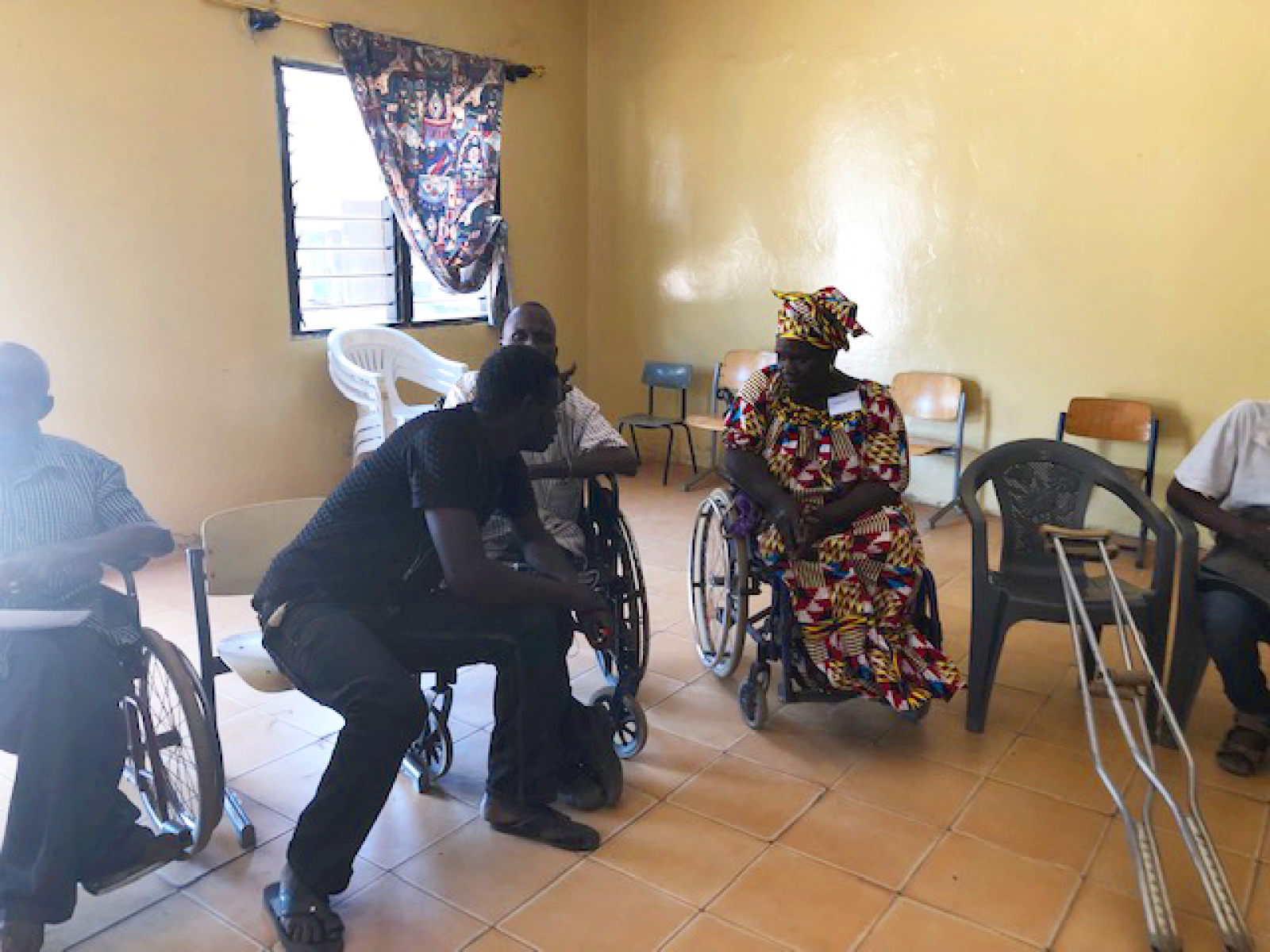
A group of activists discuss constitutional reforms at the DPO workshop
SHARE
Persons with disabilities face significant challenges in realizing their full social, political, and economic inclusion in The Gambia. Discrimination, lack of inclusive education, no representation in government, and the absence of accessible infrastructure, among other factors, create barriers to persons with disabilities fully exercising their fundamental human rights. While a Disability Rights Bill to assist persons with disabilities exists, it has languished in the legislature for over a decade. Following the landmark election in 2016, the creation of a Constitutional Review Commission to recommend changes to the Constitution has presented an opportunity for many marginalized groups, including disabled persons organizations, to provide input into the constitution drafting process in order to ensure their rights are protected.
With funding from the National Endowment for Democracy, NDI has worked with the CRC and civil society to ensure an inclusive reform process. The program included the first public poll of Gambian political attitudes since the 2016 transition. In May 2019, NDI convened a group of DPOs to discuss their experiences as individuals living with disabilities in The Gambia, their engagement or lack thereof with the constitutional review process thus far, and recommendations and next steps to ensure their voices are heard in the next stage of the review process. Participants included the visually impaired, persons with albinism, deaf and hard of hearing, and those working on developmental disabilities, as well as persons with disabilities from rural areas, who are even more likely to be left out of conversations given the additional barriers they face due to their location.
During the workshop, participants acknowledged the CRC’s efforts to include the voices of groups such as women, young people, and persons with disabilities. This included sign language interpretation and focus groups during its consultations around the country. However, DPO representatives explained that the CRC has thus far failed to directly address how the principle of inclusion will be enshrined in the new constitution. The DPOs themselves acknowledged that despite initial efforts to connect with the CRC, they had been unsuccessful speaking with the Commissioners as a unified voice under the Gambia Federation of the Disabled.
Although the workshop provided an opportunity to discuss their challenges, participants were also encouraged to think through what was going well and how to capitalize on positive momentum. This included thinking through what an inclusive constitution would embody, such as including anti-discrimination language, accommodations, and affirmative action to boost representation in government. From there, participants developed a plan of action to present their concerns and potential solutions to the CRC as a collective voice under the Gambia Federation of the Disabled. The next steps included drafting a plan to engage and pressure the CRC to act on these concerns through targeted meetings and position papers, as well as increased advocacy efforts to ensure the passage of the Disability Rights Bill once the constitutional drafting period is over.
Workshops, such as the one NDI convened in The Gambia, provide an important space for groups to meet, converse, and coordinate efforts for advocacy or other collective actions. In addition, by amplifying the voices of marginalized groups and ensuring the participation of all segments of society, it allows for new governments, such as in The Gambia, to build the foundation for a democracy that is more likely to sustain, endure, and be accountable to all the citizens it represents.
Following the meeting, there has been a marked shift in how DPOs have engaged the CRC. As a result of the meeting, participating disabled persons organizations assembled a comprehensive paper that described the current situation facing persons with disabilities in The Gambia, and provided suggestions to the CRC to ensure a more inclusive constitution. In addition, during a recent meeting with the commission, activists asked targeted questions focused on the draft Disability Rights Bill and advocated for guarantees of accessible infrastructure in the new constitution. These concerns were well received by the CRC’s vice chairman, who promised action. In addition, activists have started to meet with national human rights groups, such as The Gambia National Human Rights Policy, to draft and advance disability policy with the aid of the NDI report summarizing workshop findings and results.


